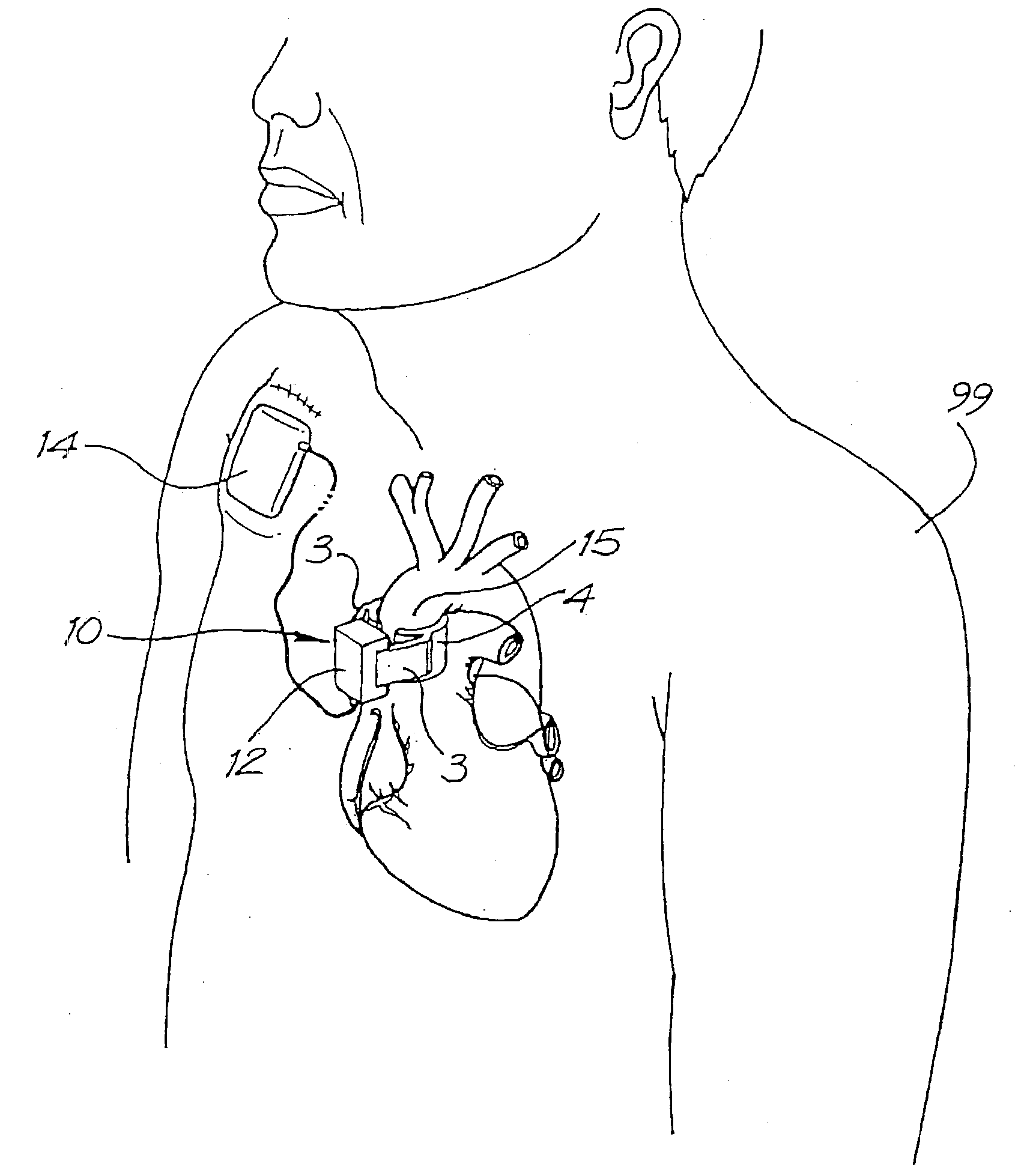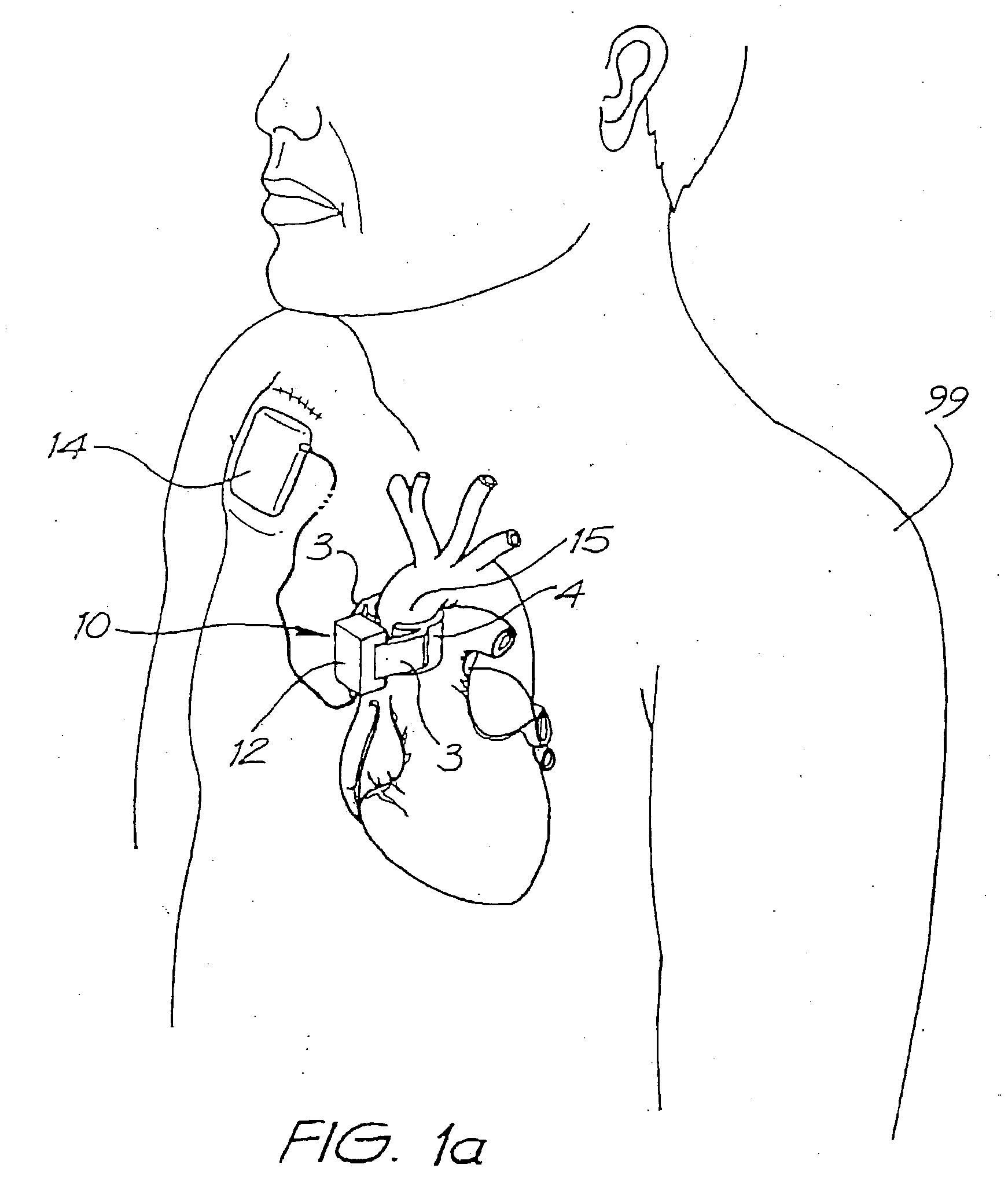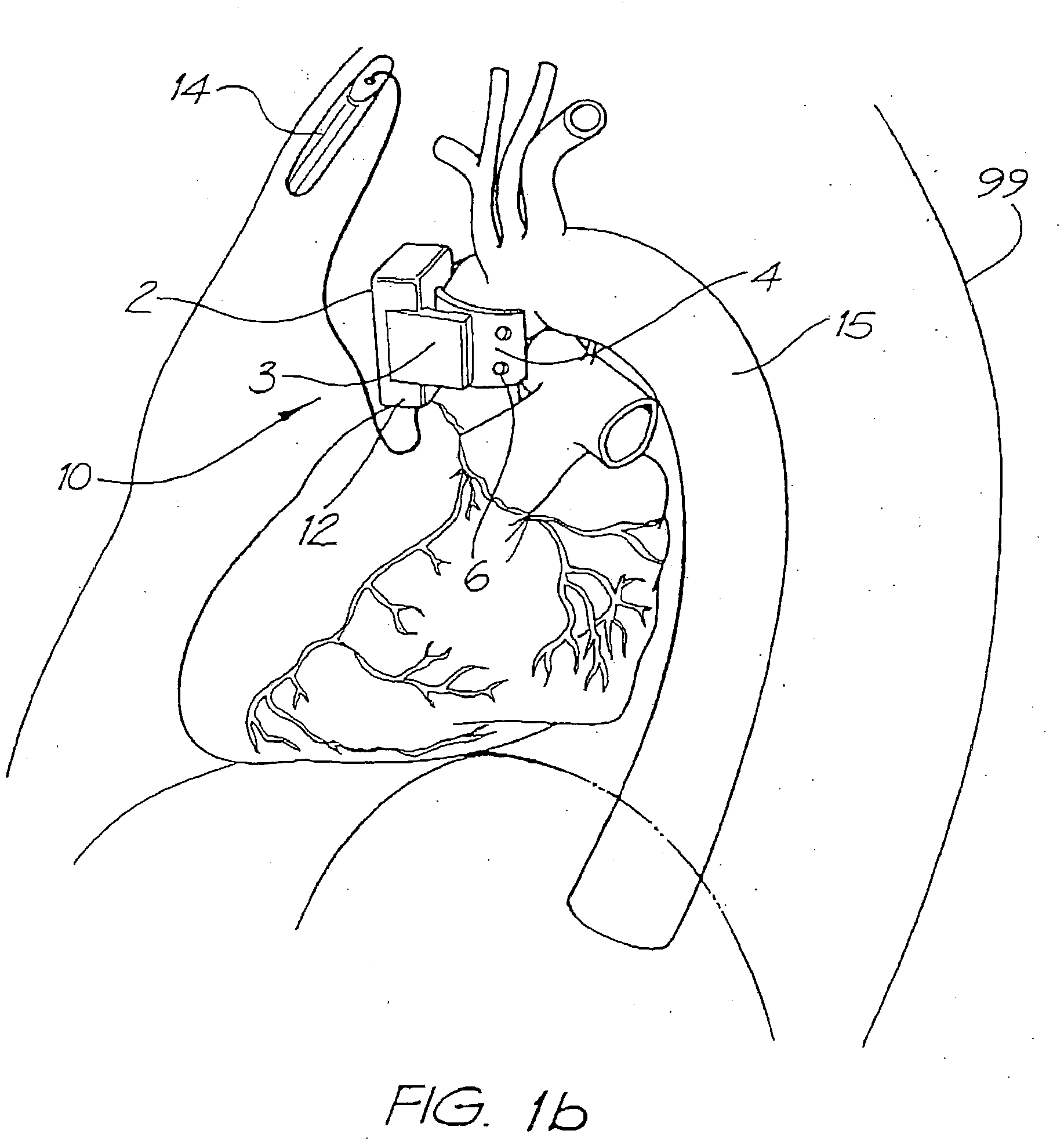Heart Assist Devices, Systems and Methods
a technology of heart assist and heart device, applied in the field of heart assist device, systems and methods, can solve the problems of slow heart rate, difficult to achieve, complicated implanting, maintaining and removing, etc., and achieve the effect of improving blood circulation
- Summary
- Abstract
- Description
- Claims
- Application Information
AI Technical Summary
Benefits of technology
Problems solved by technology
Method used
Image
Examples
first embodiment
[0092]FIG. 1a to 2b are schematic drawings showings a heart assist device 10 in accordance with the invention. The device 10 is suitable for complete implantation in the thoracic cavity of a subject 99 adjacent the ascending portion of the aorta 15, as shown. The device 10 includes an aortic compression means in the form of a hinged solenoid 2 (see FIGS. 2a and 2b) in a housing 12. The solenoid 2 is driven by pulses of electrical power from a controller / battery 14 to actuate wedge-shaped compression plates 4 via arms 3. The wedge-shaped plates 4 surround the ascending portion of the aorta 15. When the plates 4 are actuated they approach each other and that part of the aorta 15 between the plates 4 is compressed. The plates 4 have a plurality of holes 6 that provide means for suturing the plates to the aorta 15 and permitting ingrowth of tissue therethrough.
[0093]FIGS. 2a and 2b are detailed schematic drawings of the solenoid 2 which show that it includes two arcuate plates 26 hinged...
second embodiment
[0095]In the second embodiment shown in FIG. 3, the compression plates 34 are actuated via arms 33, with each of the arms 33 being acted on by a respective rod solenoid 38 acting through springs 37 between the rod solenoid 38 and the respective arm 33.
third embodiment
[0096]In the third embodiment shown in FIG. 4, solenoids 48 act on deformable nitinol plates 44 connected together at either end 47 to encircle the aorta 15.
PUM
 Login to View More
Login to View More Abstract
Description
Claims
Application Information
 Login to View More
Login to View More - R&D
- Intellectual Property
- Life Sciences
- Materials
- Tech Scout
- Unparalleled Data Quality
- Higher Quality Content
- 60% Fewer Hallucinations
Browse by: Latest US Patents, China's latest patents, Technical Efficacy Thesaurus, Application Domain, Technology Topic, Popular Technical Reports.
© 2025 PatSnap. All rights reserved.Legal|Privacy policy|Modern Slavery Act Transparency Statement|Sitemap|About US| Contact US: help@patsnap.com



